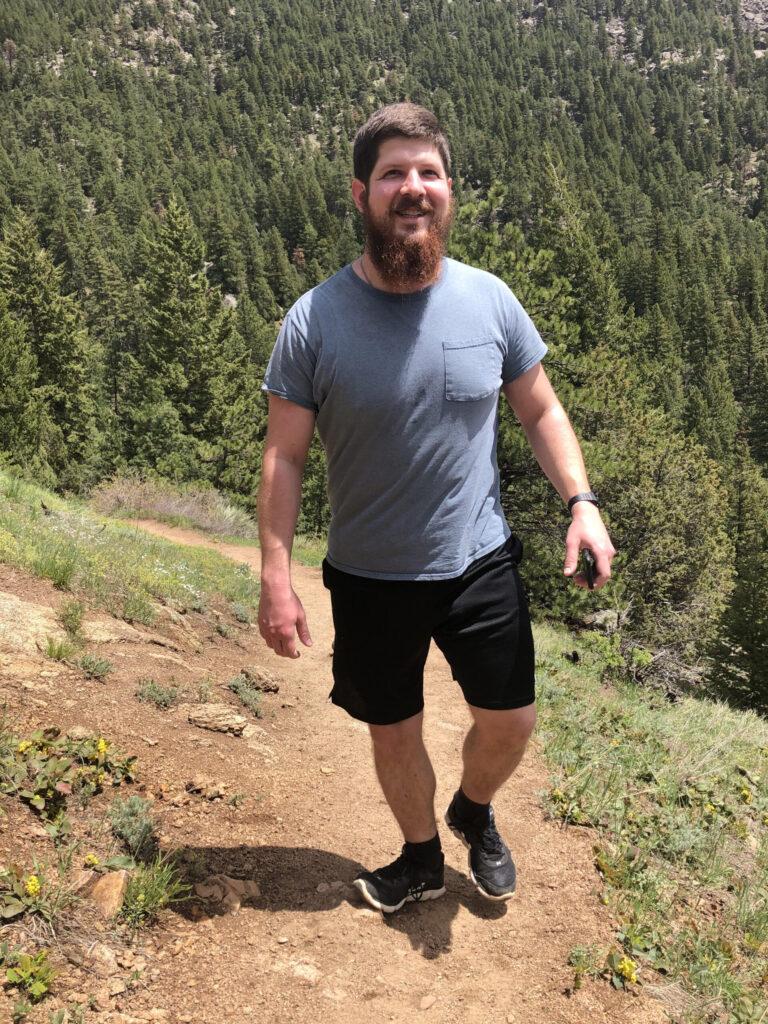
You and I often go to considerable lengths to avoid suffering. We avoid toil because it is burdensome, we put off fasting because it is painful, or perhaps we withhold our truest self from God in prayer because honesty is frightening and uncomfortable. Although the avoidance of suffering is natural and nothing to be ashamed of per se, experience has taught me that it is often in our suffering and the suffering of others that we encounter our crucified Lord.
During a pastoral assignment last year, I began visiting a homebound woman in her early 50s. She had been unexpectedly crippled by a neurological disease that left her bedridden, and was unable to walk or stand on her own, leaving her husband and children to care for themselves. Even simple speech required great effort, as she couldn’t fill her lungs with enough air to carry a conversation. I was keenly aware of my smallness compared to the scope of her suffering, and her remarks often left me unable to respond. One day she began to cry and said, “I’m afraid… I’m afraid to die.” Not knowing what to do, I acknowledged that death was indeed a fearsome thing and I asked her if she wanted to pray. She nodded ‘yes’, so I read from scripture and prayed familiar prayers. She mumbled along with some of the prayers, and as I was leaving she asked when I was coming back. I visited her often, and later learned what those visits meant to her from her mother, who helped care for her. As I saw it, I had done very little. I’m no orator, and couldn’t speak eloquently about joining her sufferings to those of Christ, nor am I a priest, so I couldn’t bless, absolve, or anoint her. All I could really do was be present to her in her suffering, and yet I kept hearing over and over again from her family what a tremendous difference that made. To me, compassion (from the Latin, compati, to suffer with) seemed an insufficient remedy for her affliction, but I was wrong.

Perhaps the most consoling passages in the Gospel are those which remind me that we are not alone in our suffering. In the Garden of Gethsemane, Jesus is seen not only suffering deeply, but willingly choosing to take that suffering upon Himself because He knew it would bring us back to Him. The mystery of Christian theology that is most difficult for me to accept is not the Trinity or Transubstantiation, it’s that an unimaginably perfect God chose to suffer, and He chose to do it for me. Jesus couldn’t stand to be separated from His bride, and preferred to join her even in suffering rather than be separated.
Wherever the bride of Christ is suffering, Jesus is found at Her side. As a seminarian who prepares to take that same bride for his own, I can’t help but consider her state: crippled, wounded, and rejected by the world. Who will come to meet her in her suffering? Who will take on the yoke of Jesus Christ’s priesthood and incarnate the bridegroom, making His healing body present to the battered body of His bride?
The woman I visited soon died. As I was preparing to serve the Mass on the day of her funeral, a parishioner approached me and said, “Funerals are so sad – just think of how she suffered! This must be one of the worst parts of your job.” Surprised, I stammered out something about how it wasn’t that bad. It wasn’t until later in prayer that I began to realize how wrong that was. Being present to the suffering bride isn’t one of the worst parts of my “job”, it is certainly one of the best.
Mike is in 3rd Theology at St. Mary’s Seminary and University in Baltimore. Michael’s home parish is St. Peter’s in Libertytown. Please pray for Mike!